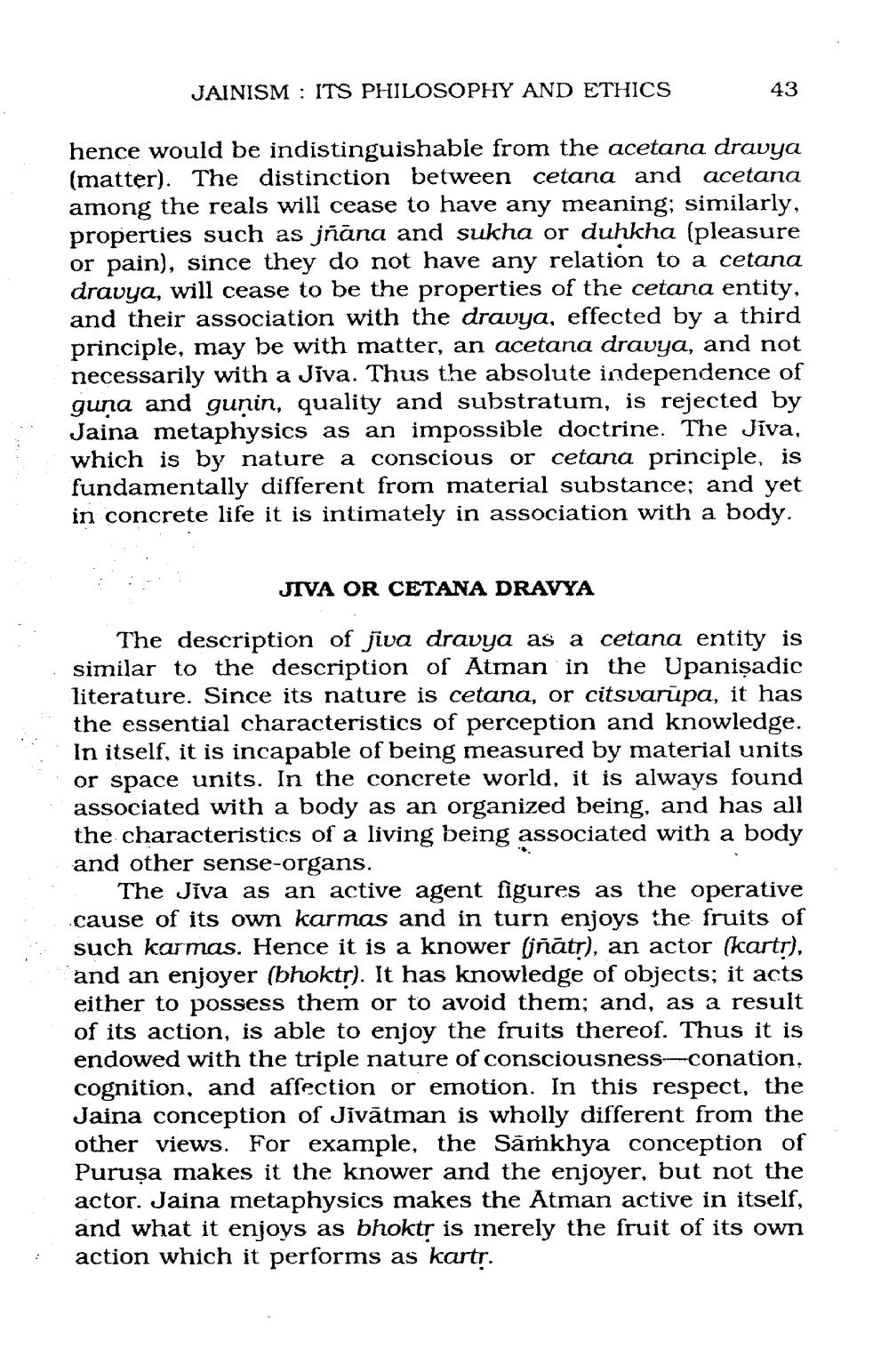________________
JAINISM : ITS PHILOSOPHY AND ETHICS
43
hence would be indistinguishable from the acetana dravya (matter). The distinction between cetana and ac
nong the reals will cease to have any meaning; similarly, properties such as jñana and sukha or duhkha (pleasure or pain), since they do not have any relation to a cetana dravya, will cease to be the properties of the cetana entity, and their association with the dravya, effected by a third principle, may be with matter, an acetana dravya, and not necessarily with a Jiva. Thus the absolute independence of guna and guņin, quality and substratum, is rejected by Jaina metaphysics as an impossible doctrine. The Jiva, which is by nature a conscious or cetana principle, is fundamentally different from material substance; and yet in concrete life it is intimately in association with a body.
JIVA OR CETANA DRAVYA
The description of siva dravya as a cetana entity is similar to the description of Atman in the Upanişadic literature. Since its nature is cetana, or citsvarūpa, it has the essential characteristics of perception and knowledge. In itself, it is incapable of being measured by material units or space units. In the concrete world, it is always found associated with a body as an organized being, and has all the characteristics of a living being associated with a body and other sense-organs.
The Jiva as an active agent figures as the operative .cause of its own karmas and in turn enjoys the fruits of such karmas. Hence it is a knower (jñātr), an actor (kartr), and an enjoyer (bhoktr). It has knowledge of objects; it acts either to possess them or to avoid them; and, as a result of its action, is able to enjoy the fruits thereof. Thus it is endowed with the triple nature of consciousness-conation. cognition, and affection or emotion. In this respect, the Jaina conception of Jivātman is wholly different from the other views. For example, the Samkhya conception of Purusa makes it the knower and the enjoyer, but not the actor. Jaina metaphysics makes the Atman active in itself, and what it enjoys as bhoktr is merely the fruit of its own action which it performs as kartr.




